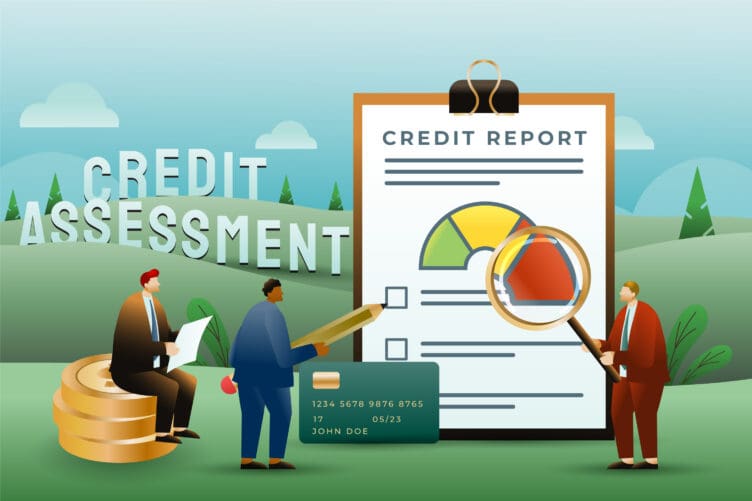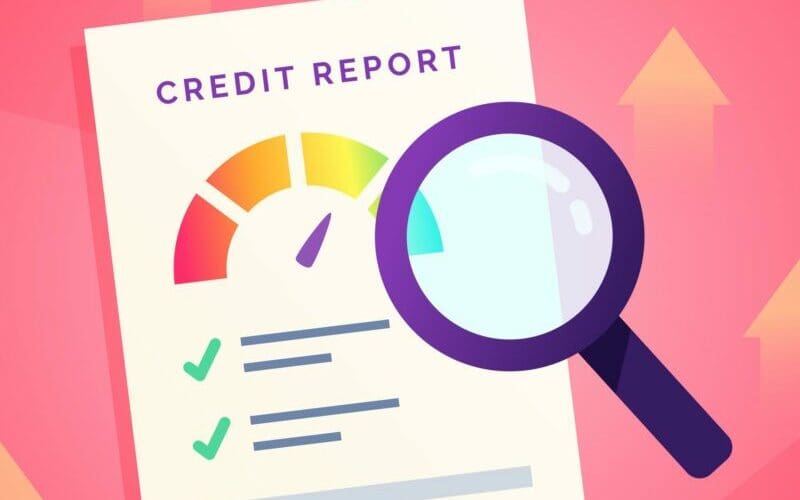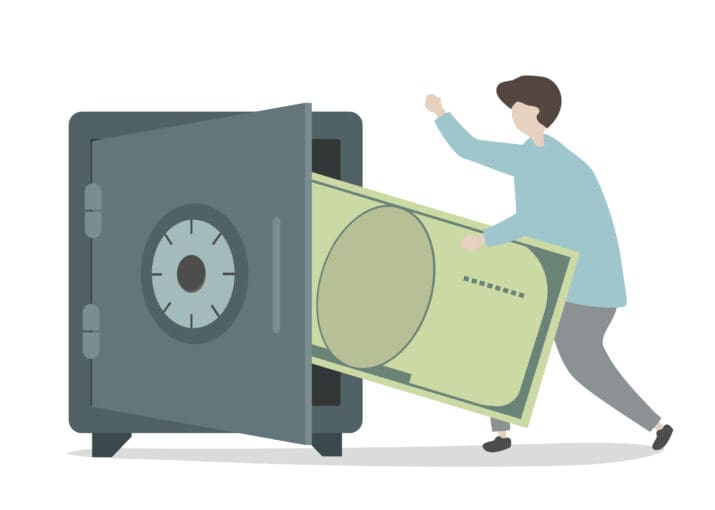Rebuilding your credit after filing for Chapter 13 bankruptcy is possible if you follow a plan. Many people have gone through Chapter 13 bankruptcy and rebuilt good or even great credit. It’s a challenging journey, but with the right steps, you can come out the other side in a stronger financial position. Let’s take a look at Chapter 13 bankruptcy, how it impacts your credit, and the best ways to rebuild credit while in Chapter 13 bankruptcy.
Understanding Chapter 13 Bankruptcy
Chapter 13 bankruptcy, often referred to as a wage earner’s plan, allows you to repay all or part of your debt with the help of your regular income. Under Chapter 13, you work with a bankruptcy attorney and propose a plan to the court to make installments to your creditors over three to five years.
Another bankruptcy option is filing for Chapter 7 bankruptcy, which could be a better choice if you don’t have substantial income or assets e.g. an expensive car or house. Chapter 7 aims to eliminate most unsecured and unsecured credit card debts within 3-6 months but comes with longer-lasting credit implications compared to Chapter 13.
Bankruptcy can be a tough pill to swallow, but it’s not the end of the world. It’s a legal and structured way to help you manage your debts and give you a fresh start. While it does have a significant impact on your credit, it’s not a permanent mark. It stays on your credit report for seven years. This might seem like a long time, but remember, rebuilding your credit starts the day your bankruptcy is filed, not when it’s discharged.
The Impact of Chapter 13 on Your Credit Score
Your credit score is a number from 300 to 850 that lenders use to assess how likely you are to repay your debts. A higher score indicates that you have better credit. It’s based on several factors, including your payment history, the amount of debt you have, and the length of your credit history.
Filing for Chapter 13 bankruptcy significantly lowers your credit score. But this drop is not forever. The point of Chapter 13 is to carefully plan your repayment strategy and with disciplined financial habits, rebuild your credit over time. If you had late credit card payments or defaults on your debts before you filed for bankruptcy, these will have also negatively impacted your credit score. However, once you file for bankruptcy, these past-due amounts are typically eliminated, and you can start fresh.
On the positive side, Chapter 13 bankruptcy can reduce your debt-to-income ratio, which can be beneficial for your credit score in the long run. This is because a portion of your debts may be discharged in bankruptcy, and you’ll be making regular payments on your remaining debts through your Chapter 13 repayment plan.
Steps to Rebuild Credit While in Chapter 13

Here are the key steps to help you rebuild your credit while in Chapter 13:
Make Your Plan Payments on Time
If you’re filing for Chapter 13 bankruptcy your bankruptcy attorney will help you create your Chapter 13 payment plan. Your attorney will work with you to understand your financial situation, including your income, expenses, and debts. Based on this information, you work together to develop a repayment plan that fits your budget and also meets the requirements of the bankruptcy code.
After the plan has been approved, one of the best ways you can start to rebuild credit while in Chapter 13 is by making your Chapter 13 plan payments on time. This shows potential lenders that you’re responsible and committed to paying off your debts.
Create a Budget and Stick to It
When you’ve developed your Chapter 13 bankruptcy plan, your bankruptcy attorney and the court will want to see that you have the means to stick to your plan. A budget is an essential part of that plan that shows how you will stay on track. Budgeting is a powerful tool that can help you manage your money effectively. It involves tracking your income and expenses to ensure you’re living within your means. There are many resources available online to help you create a budget, including many budgeting apps that make it easier to stick to your Chapter 13 payment plan.
Save and Build Your Emergency Fund
One of the reasons why you may have gotten into a lot of debt in the first place could be because you didn’t have an emergency fund. An emergency fund is a safety net that can cover your unexpected expenses or financial emergencies. It can also help you avoid taking on more debt. Financial guru Suze Orman recommends aiming for an emergency fund that can cover you for at least three to six months’ worth of living expenses. A part of developing your Chapter 13 plan will be to build up your emergency fund, which will make it easier for you to manage unexpected expenses in the future.
Understand Your Credit Report and Credit Score
Since being in Chapter 13 bankruptcy is all about rebuilding your credit score, you’re credit report is one of the most important things to keep an eye on. Your credit report is a detailed summary of your credit history, prepared by a major credit bureau like Experian, Equifax, or TransUnion. It lists details of all your credit cards, loans, and other credit accounts. It will show if you have any bankruptcy credit cards, unsecured credit cards, or secured cards. It also includes information about where you live, how you pay your bills, and whether you’ve been sued or filed for bankruptcy. Lenders use it to make decisions about whether to offer you credit and what interest rates to charge you.
Your credit score, which is on your credit report, is a numerical summary of the information in your credit report. It’s a quick way for lenders to assess your credit risk. The higher your score, the less risky you appear to lenders.
As you rebuild credit while in chapter 13 it’s important to check your credit report regularly to ensure the information is accurate. Mistakes on your credit report can reduce your credit score. If you find errors on your credit report, you should call the credit bureau as soon as possible and discuss it with them. You can get a free copy of your credit report from each of the three major credit bureaus – Experian, Equifax, and TransUnion – once a year through AnnualCreditReport.com.
Can I Get a Credit Card During Chapter 13?

A secured credit card can be a great tool to rebuild credit while in Chapter 13. Getting a secured credit card requires you to pay a cash deposit, which serves as your credit limit. This security deposit is usually held in a savings account. Cards from issuers like Discover or Capital One, that report to the major credit bureaus, are common options. By making small purchases and paying off your balance in full each month, you can start to rebuild your credit history. Being approved for a secured card isn’t a given, and being rejected should be avoided at all costs while you’re rebuilding your credit. Be sure you know how to get approved for a credit card before applying.
You can use a secured credit card while you’re in Chapter 13 bankruptcy, but there are a few things to keep in mind:
The goal of Chapter 13 bankruptcy is to help you rebuild your credit, manage your debts, and get back on solid financial footing. Using a secured credit card responsibly can help you achieve this goal by improving your credit over time. However, you need to make sure that using a secured credit card fits into your budget and your Chapter 13 repayment plan. Check with your bankruptcy attorney or trustee before using your existing credit cards, or applying for a new credit card.
What Can You Do to Rebuild Credit While in Chapter 13?

Utilizing a Secured Loan to Rebuild Credit During Chapter 13
A secured loan can play a significant role in rebuilding credit during a Chapter 13 bankruptcy. A secured loan is a type of credit where you provide an asset or cash as collateral, which the lender can seize if you fail to repay the loan.
Here’s how a secured loan can help rebuild your credit:
Here are a couple of practical ways you could use a secured loan to help rebuild credit while in Chapter 13 bankruptcy:
Secured Auto Loan
Let’s say you have saved up $1,500 and decide to use this as a down payment on a used car for $10,000. You take out a secured auto loan for $8,500 to cover the rest of the cost of the car.
The car itself serves as collateral for the car loan. You make sure the monthly payments fit within your budget, and you make each payment on time. Your lender reports your on-time payments to the credit bureaus, which helps to rebuild your credit history and improve your credit score.
Share-Secured or Certificate of Deposit Secured Loan
If you have $5,000 of savings at your bank you can take out a certificate of deposit (CD) secured loan for $4,000, using your CD as collateral.
You use the loan to pay for your day-to-day expenses, ensuring that you can keep making your Chapter 13 plan payments on time. You have a repayment plan that fits within your budget, and you make each loan payment on time.
Like with the other examples, your bank reports your on-time payments to the credit bureaus. This helps to rebuild your credit history and improve your credit score.
In both of these examples the key to rebuilding your credit is making your payments on time and in full. Also, before taking out any new credit during Chapter 13 bankruptcy, check in with your bankruptcy attorney or trustee.
Using a Credit Builder Loan to Rebuild Credit While in Chapter 13

Credit builder loans are small loans offered by some credit unions and banks to help individuals build credit. The money you borrow is not provided to you, rather it is held in a savings account until the loan is paid off. Making timely payments on a credit builder loan can help improve your credit score.
Rebuilding Credit with a Co-Signer
If you’re having trouble getting credit on your own, you might consider asking someone with good credit to co-sign a loan or credit card application with you. This can be a helpful step in rebuilding your credit, but it’s important to make sure you can make the payments. If you don’t, your co-signer will be responsible for the debt.
You could also consider becoming an authorized user on a family member’s long-standing credit card, like their bank platinum visa, to gain a positive payment history reported to the bureaus. Make sure taking on this new account does not make it more difficult to meet your repayment obligations outlined in your existing bankruptcy proceedings.
Gradually Applying for More Credit
As your credit improves, you might be tempted to apply for more credit. While this can help improve your credit score, it’s important to do so gradually and responsibly. Applying for too much unsecured credit at once can negatively impact your credit. Each time you apply for new credit, it can result in a hard inquiry on your credit report, which can lower your credit score.
Try to space out your applications for credit cards, personal loans, and other forms of unsecured credit to no less than 6 months apart. This gradual approach will minimize the impact on your credit score, and help demonstrate your ability to responsibly manage different types of credit obligations over time.
While you’re in Chapter 13 bankruptcy, you’ll generally need to get the court’s permission before you can obtain new credit. It might be easier to wait until your bankruptcy is discharged before applying for new credit.
Avoiding New Debts
While you’re working on rebuilding your credit, it’s important to be very careful about taking on new debts. This includes not only credit cards and loans but also any other type of debt like medical bills or unpaid taxes.
Managing Debt After Chapter 13 Bankruptcy
When you’re Chapter 13 bankruptcy is over, taking on new debt is OK. Taking on new debt is a good way to maintain a healthy credit score, so long as you manage your debt properly. In fact, some debt can’t really be avoided, such as a mortgage, or student debt.
Here are the key things you should focus on to ensure your debt is managed carefully:
Rebuilding your credit while in Chapter 13 bankruptcy is a tough challenge. But with patience, discipline, and the right strategies, it’s entirely possible. Remember, the journey to better credit isn’t a sprint, it’s a marathon. But every step you take brings you closer to your financial goals.
Frequently Asked Questions



